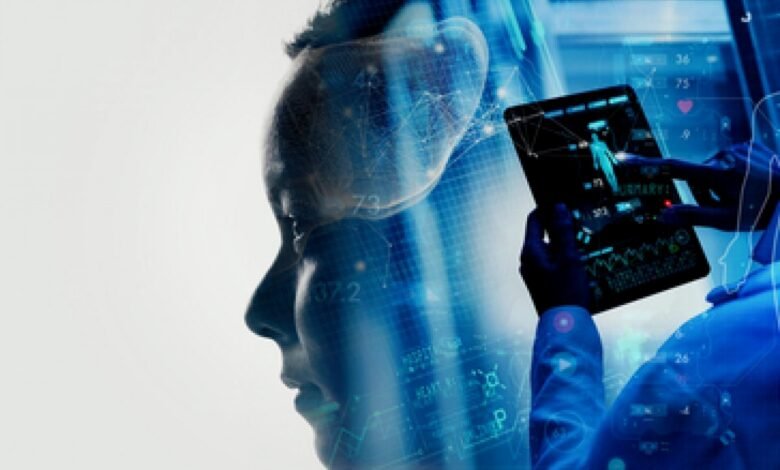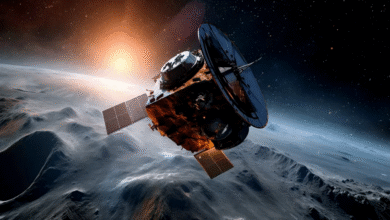
As we move towards a more data-driven world, artificial intelligence (AI) has emerged as a key technology for helping us understand and harness the power of big data. Recent advances in AI have enabled researchers to use data analytics to identify and diagnose rare cancers with greater accuracy and efficiency. In this article, we’ll explore how AI research is transforming the field of oncology and revolutionizing cancer diagnosis and treatment.
Read More: 5 Biggest Education and Training Technology Trends in 2023
Understanding Big Data
Before we dive into how AI is helping to detect rare cancer, it’s important to understand what big data is and how it’s used in healthcare. Big data refers to large and complex data sets that can be analyzed to reveal patterns, trends, and associations. In healthcare, big data is used to improve patient outcomes, streamline operations, and support research.
One of the challenges of using big data in healthcare is that it can be difficult to analyze and interpret due to its sheer size and complexity. This is where AI comes in. Using machine learning algorithms, AI can identify patterns and correlations in big data that would be impossible for humans to detect independently.
The Role of AI in Cancer Research
Cancer is one of the most complex and challenging diseases to diagnose and treat. Traditional cancer diagnosis methods rely on manual analysis of tissue samples, which can be time-consuming and prone to errors. Researchers have turned to AI to help them identify and diagnose cancer more accurately and efficiently in recent years.
One example of how AI is being used in cancer research is through the analysis of genomic data. Genomic data refers to the complete set of DNA in a person’s cells. By analyzing genomic data using AI algorithms, researchers can identify genetic mutations associated with specific types of cancer. This can help doctors diagnose cancer earlier and develop more personalized patient treatment plans.
Detecting Rare Cancers with AI
One of the biggest challenges in cancer diagnosis is detecting rare cancers. Because these cancers are so uncommon, it can be difficult for doctors to identify them using traditional diagnostic methods. However, AI is proving to be a powerful tool for detecting rare cancers by analyzing big data.
In a recent study, researchers used AI to analyze electronic health records (EHRs) to identify patients with rare cancers. By analyzing a large dataset of EHRs, the AI algorithms were able to identify patterns and correlations that indicated the presence of rare cancers. This approach could help doctors diagnose rare cancers earlier and develop more effective treatment plans.
Challenges and Limitations of AI in Cancer Research
While AI has shown great promise in oncology, challenges and limitations still need to be addressed. One of the biggest challenges is ensuring that the AI algorithms are trained on diverse and representative datasets. If the datasets used to prepare the algorithms are biased or incomplete, the algorithms may not be accurate or adequate.
Another challenge is ensuring that the AI algorithms are transparent and explainable. As AI becomes more sophisticated, it can be difficult for humans to understand how the algorithms make decisions. This can be problematic in the context of cancer diagnosis and treatment, where doctors need to understand and explain the reasoning behind AI-driven recommendations.
FAQs
- What is big data, and how is it used in healthcare? Big data refers to huge and complex data sets that are difficult to manage and analyze using traditional data processing methods. In healthcare, big data includes electronic health records, medical imaging data, genomic data, and data from wearable devices and sensors.
- How is AI used in cancer research? AI is used in cancer research to help identify patterns and correlations in big data that would be impossible for humans to detect independently. It can also be used to analyze genomic data to identify genetic mutations associated with specific types of cancer.
- What are some of the challenges of using AI in cancer research? Some challenges of using AI in cancer research include ensuring that the algorithms are trained on diverse and representative datasets, making the algorithms transparent and explainable, and addressing potential biases in the data.
- How is AI helping to detect rare cancers? AI is helping to detect rare cancers by analyzing big data, including electronic health records, to identify patterns and correlations that indicate the presence of rare cancers. This can help doctors diagnose rare cancers earlier and develop more effective treatment plans.
- What is the potential of AI in cancer research? The possibility of AI in cancer research is enormous and holds great promise for improving patient outcomes. By enabling extensive data analysis and more accurate and efficient cancer diagnosis, AI could ultimately lead to more effective and personalized cancer treatments.
Conclusion
AI research is transforming the field of oncology and enabling extensive data analysis to detect and diagnose rare cancers. Using machine learning algorithms to analyze large and complex datasets, researchers can identify patterns and correlations that would be impossible to see using traditional methods. While there are still challenges and limitations to be addressed, the potential of AI in cancer research is enormous and holds great promise for improving patient outcomes.
Read More: The 15 Biggest Artificial Intelligence (AI) Trends In 2023








One Comment